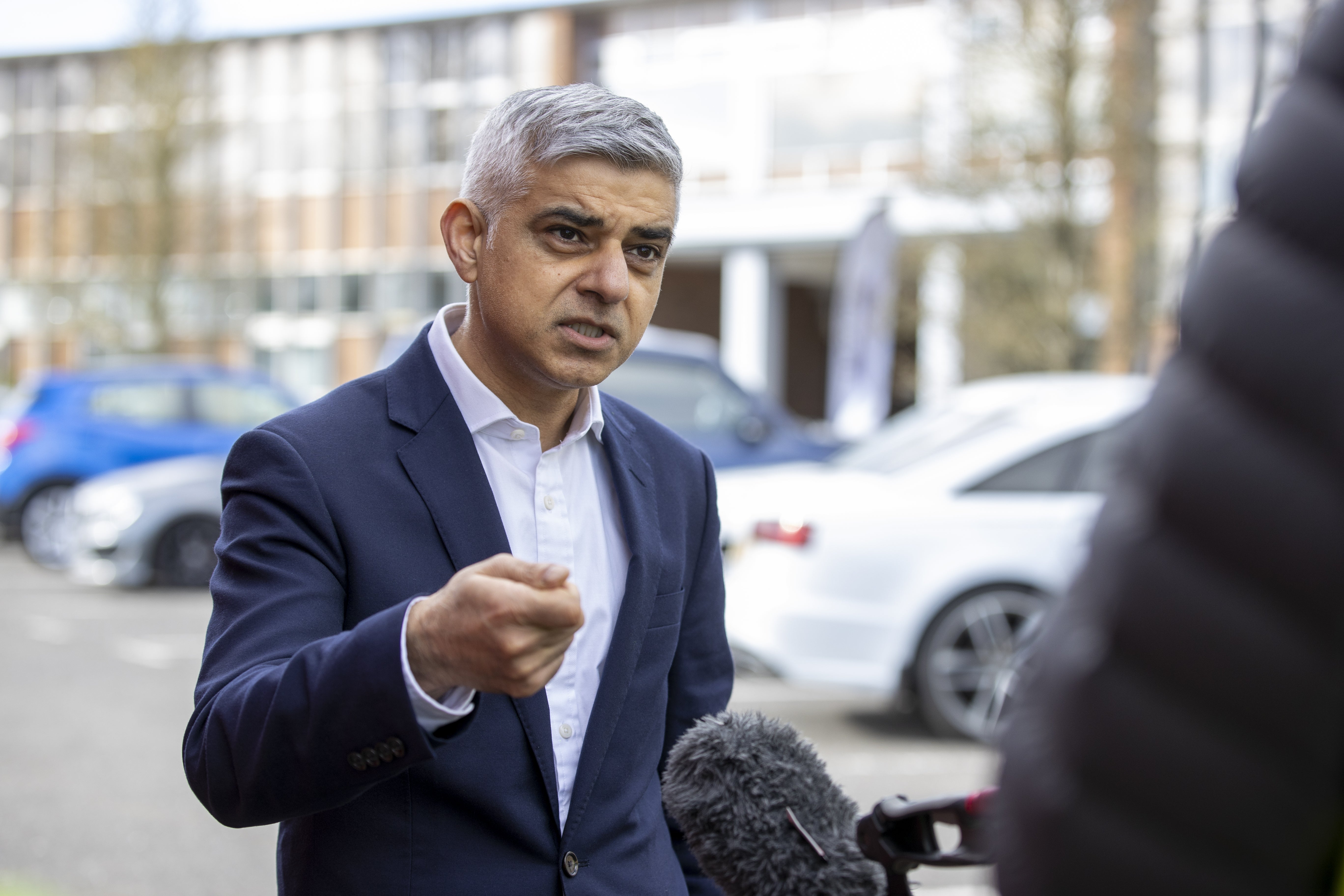Mayor outlines plan to restore trust in Met but critics claim it lacks detail
Sadiq Khan said he is determined to ‘drive the changes and reforms needed’ within the police force.

The mayor of London has vowed to restore trust in the Metropolitan Police as research suggested public confidence in the force has hit a record low.
Sadiq Khan said “making London safer is my number one priority” and he stressed his “determination to drive the changes and reforms needed within the Met Police” after the force endured a series of scandals which prompted the resignation of commissioner Dame Cressida Dick.
It comes as findings from a City Hall survey indicated just over half of Londoners (51%) feel the police are doing a good job – the “lowest level ever recorded” in a study which canvasses the opinions of 12,800 residents a year.
When trust is eroded, it makes it harder to tackle crime, with victims failing to report crime and witnesses discouraged from coming forward when they see criminal activity
The latest data for the year to December 2021 compares to 68% for the same period in 2017. Trust in the force also fell, from 88% in the 12 months to June 2017 to 76% in the year to December 2021, according to the figures.
Mr Khan set out his three-year police and crime plan for the capital after a “series of deeply concerning incidents have seriously damaged public trust and confidence in our police”.
They include the murder of Sarah Everard by Met constable Wayne Couzens in March last year, revelations that officers at Charing Cross police station shared racist and misogynistic messages, and concerns over the force’s ability to tackle corruption within its ranks.
He said: “When trust is eroded, it makes it harder to tackle crime, with victims failing to report crime and witnesses discouraged from coming forward when they see criminal activity,” adding that he wants to make sure the force and the next commissioner “urgently make the changes and reforms necessary to rebuild trust and confidence with Londoners”.
Measures include putting the force’s disciplinary process under greater scrutiny from the Mayor’s Office for Policing and Crime (MOPAC), providing more “support” to “stamp out discrimination in all its forms and root out those who abuse their trusted position as officers”, as well as “developing community-led training for police officers”.
But critics said his plan lacks detail.
Ken Marsh, chairman of the Metropolitan Police Federation which represents more than 30,000 rank-and-file officers, told the PA news agency: “We have no issue with change within the police. If it is for the good of policing, we are all for it. But there is no detail.”
He accepted public trust “is an issue and it has been eroded by these horrific incidents that have taken place”, but he said it is “disingenuous to keep playing it out so publicly over and over again”, as he asked: “What do you achieve from that?
“I don’t want people in the Metropolitan Police, or in any police service, who are not delivering, who are dishonest, who are wrong…
“But 99.9% of my 32,500 colleagues are working tirelessly. Why doesn’t the mayor talk about our pay and conditions, which have been eroded so horrendously over the last 15 years?”
The plan acknowledges the “vast majority” of Met officers and staff do an “excellent, professional and dedicated job for Londoners”, adding the mayor will back their “vital work” and do “everything possible to ensure they have the funding they need”.
London Victims’ Commissioner Claire Waxman said the plan shows “clear acknowledgement that public trust and confidence have been damaged and urgently need to be rebuilt” and “rightly prioritises the rights and needs of victims”.
Councillor Jas Athwal, London Councils’ executive member for crime and public protection, welcomed the plan, saying: “London needs a police service that is fair, trusted, diverse and effective.”
As well as increasing trust and confidence in the police, the plan wants to tackle violence, better support victims and protect people from being exploited.
Published after consultation with nearly 4,000 people, the 58-page document vows to make sure the Met treats Londoners “fairly” and responds to crimes properly, while also pledging to keep women and girls safe.
Another plan to tackle violence against them is expected to be published in the coming weeks.
Dame Cressida said she is confident that “with the right financial and public support, the exceptional men and women of the Met will continue to make this great city even safer”.
Bookmark popover
Removed from bookmarks